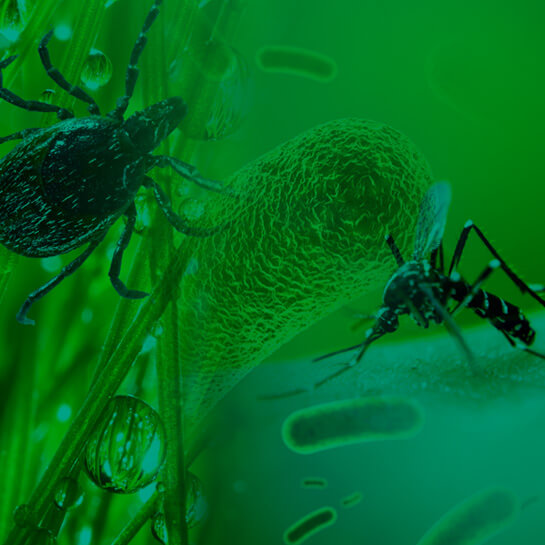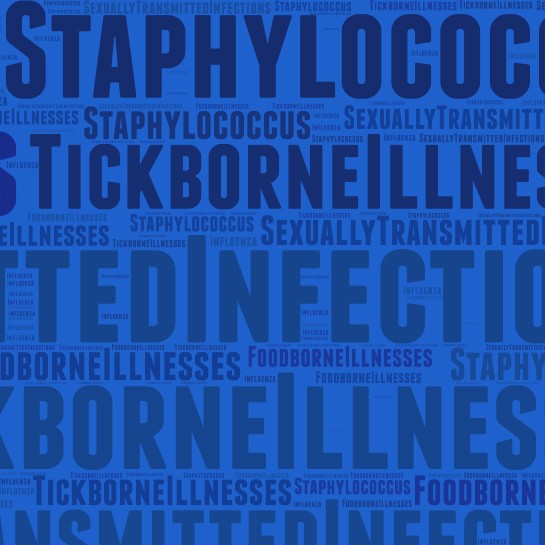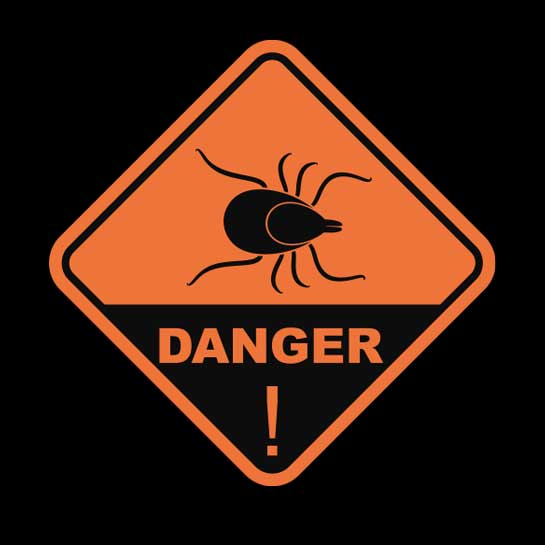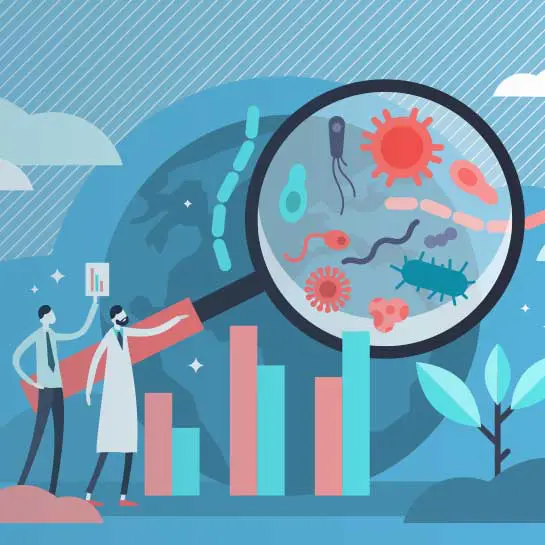Understanding Ehrlichiosis
Treatment
Ehrlichiosis Treatment
Ehrlichiosis is a tick-borne illness, spreading from lone star and black-legged ticks infected with Ehrlichia bacteria. Due to ticks’ small size and painless bites, many people do not realize they have been bitten until after symptoms begin.
Though treatable when diagnosed quickly, ehrlichiosis can become serious in its late stages. Take precautions against ticks when outside, and if you become sick after receiving a tick bite or encounter any of the symptoms listed, seek immediate treatment from your nearest ID Care provider located throughout the state of New Jersey.

Treatment options using the least amount of antibiotics with the safest, most effective results.
What Are The Signs And Symptoms Of Ehrlichiosis?
Ticks prefer warm, moist areas of the body, and once they bite, they tend to remain attached to your body and can stay there for up to ten days. Tick-borne diseases can cause many different symptoms that often present themselves within several days or weeks after a bite. These symptoms may include a red spot or rash near the bite, neck stiffness, headaches, nausea, lethargy, muscle or joint pain, fever, chills, or swollen lymph nodes.
How Does ID Care Diagnose Ehrlichiosis?
Generally, our specialists use blood tests to confirm a diagnosis of ehrlichiosis. Since tests can take weeks to complete, we may prescribe you antibiotics while we wait for results.
How Does ID Care Treat Ehrlichiosis?
Like many tick-borne illnesses, ehrlichiosis responds well to antibiotics like doxycycline. If you seek treatment early enough, you’ll likely make a full, quick recovery with oral antibiotics alone. Our specialists can determine the specific medication that will best treat your diagnosis.
How Can I Prevent Ehrlichiosis?
The only way to prevent ehrlichiosis is by preventing tick bites. You can reduce your chances of encountering ticks by avoiding grassy, wooded areas, and carefully grooming pets that have been outside. Since ticks can nest anywhere from the woods to your own yard, take precautions when going outdoors. Wear clothing treated with 0.5% permethrin, use insect repellent containing a high concentration of DEET, and avoid areas with long grass and dense woods.
After returning indoors, check yourself and your clothing, gear, pets, and children for ticks. Shower soon after coming inside and make sure you carefully dispose of any ticks on your body. You can kill ticks found on clothing with a high-heat treatment in the dryer. Make sure you use hot water when washing clothes, as colder temperatures will not kill ticks.
Recover With Expert Help
Get the treatment you need to make a full recovery. If you have symptoms of ehrlichiosis, reach out to your nearest ID Care provider in New Jersey. Our specialists can confirm your diagnosis and provide top-quality treatment options. For more information, call us at 908-281-0221 or contact us online.






